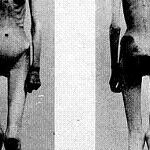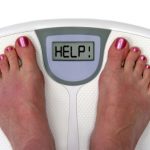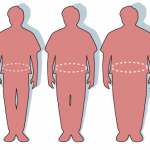Articles

Anorexia means “not eating.” The eating disorder where people willfully stop eating (instead of from a surgery or cancer or other physical illness) is properly called anorexia nervosa. The “nervosa” part refers to the psychological basis. It’s also not necessarily about starving oneself. Excessive exercise, laxatives and other measure can be used so that even …
Read More

Anorexia Athletica is an eating disorder characterized by excessive exercise with or without calorie restriction. Also referred to as Sports Anorexia, Compulsive Exercising, and Hypergymnasia, this disorder is common among athletes. People who have Anorexia Athletica are at risk for malnutrition, which could cause a variety of health problems, including menstrual irregularities in women, decreased …
Read More

Although there are many modalities that can be used as treatments for obesity, the only thing that truly works is to consume less calories than are expended. Treatments for obesity are aimed at supporting a person create a negative energy balance in which they are burning more calories each day than they absorb. Treatments for …
Read More

Eating disorders (including anorexia and bulimia) are serious illnesses which require professional intervention in order to promote long-term recovery and well being. Eating disorders are complex, and treatment may involve a team approach. Although the individual with an eating disorder may appear to be overly focused on food, body weight, and a refusal to eat, …
Read More

The treatment for binge eating disorder will most likely include a multidisciplinary approach combining therapy, dietary modifications, and perhaps even medications. Treatment for binge eating disorder may be either inpatient at a residential facility or outpatient in nature. Because currently there is no official diagnosis for binge eating disorder in the Diagnostic and Statistical Manual, …
Read More

The Refrew Eating Disorder Program is a multifaceted approach to the successful treatment of eating disorders. It’s mission is to advance the education, prevention, treatment, and treatment of eating disorders. Founded in 1985 as the first free-standing facility dedicated to the exclusive treatment of eating disorders, the Renfrew Eating Disorder Program has continued to grow …
Read More

Treatments for obesity work best when the issues that cause the person to overeat are addressed. First of all though, a medical examination should rule out any physical cause for obesity. Treatment for this complex condition may be aimed at helping the person cope with difficult emotions and feelings. Learning how to take care of …
Read More

Obesity is defined as having a body mass index (BMI) greater than 30 and means that a person has a disproportionate amount of body fat. Since the incidence of obesity is upwards of 30% of the population in the United States, researchers have great interest in finding drugs for obesity. Obesity is caused by an …
Read More

Obesity and children now affects upwards of 17% of persons aged 2 to 19 according to the Centers for Disease Control (CDC). In fact, the rate of obesity and children tripled between the 1980’s and the 2000’s. Although there are some genetic and hormonal diseases that can affect obesity and children, the vast majority of …
Read More

The Maudsley Prescribing Guidelines refer to the title of a reference book for health professionals. The guide contains clinical information regarding various topics of interest common to the field of psychiatry. The book covers areas such as psychiatric evaluation, diagnosis, and treatment. It contains practical advice as well as background information and scientific data. This …
Read More
 Eating Disorder Self Test. Take the EAT-26 self test to see if you might have eating disorder symptoms that might require professional evaluation. All answers are confidential.
Eating Disorder Self Test. Take the EAT-26 self test to see if you might have eating disorder symptoms that might require professional evaluation. All answers are confidential.
Find a Treatment Facility Near You
Click on a state below to find eating disorder treatment options that could be right for you.










 Eating Disorder Self Test. Take the EAT-26 self test to see if you might have eating disorder symptoms that might require professional evaluation. All answers are confidential.
Eating Disorder Self Test. Take the EAT-26 self test to see if you might have eating disorder symptoms that might require professional evaluation. All answers are confidential.